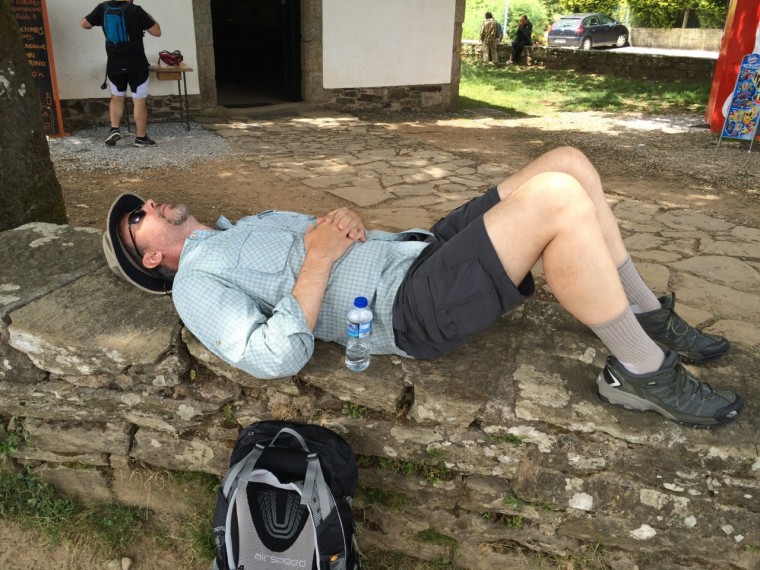Walking all day with a 15-pound backpack, 15 miles finished. According to the directions, only a mile to go. I was exhausted. It began to rain. I had a decision to make, do I push through the last mile, maybe 30 minutes more walking and finish for the day, or do I stop and get out of the rain and continue later?
I decided to push through. This was a mistake.

It was the first day of 5 days of walking the Camino de Santiago, the Way of St James, in northern Spain. I wanted to get to the stop for the night and shower and rest – most of all, to stop walking.







